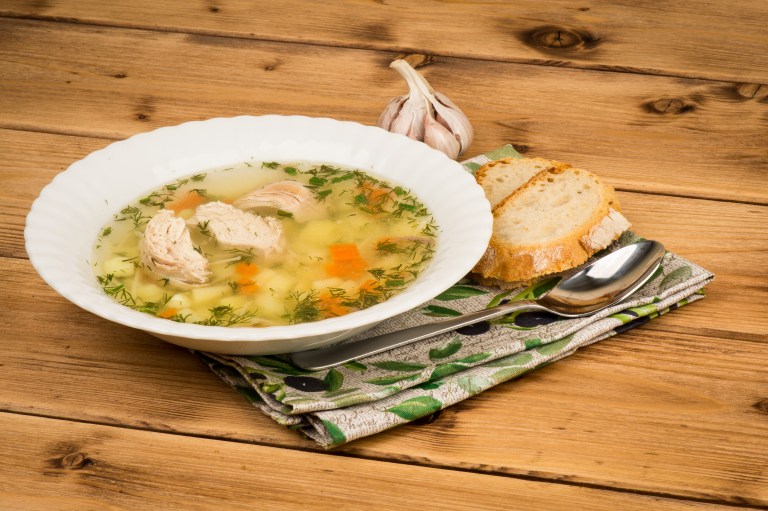
NYU Winthrop Hospital’s Center for Cancer Care announced that it has expanded its Oncology Nutrition Services to meet the needs of a wider range of patients. Nutrition assessments, where applicable, are now initiated for Center for Cancer Care patients prior to them receiving cancer surgeries or treatments, in contrast to the traditional approach that provides nutritional counsel primarily during and after treatments.
The NYU Winthrop goal is to intercept patients “ahead of the curve” on the continuum of cancer care, helping each patient to build strength, stamina, and healthy body tissue prior to undergoing oncology surgeries or treatments. By being highly proactive, NYU Winthrop seeks to optimize patients so they are better able to tolerate cancer surgeries and are better prepared for any treatments following, such as chemotherapy, radiation and immunotherapy, all of which can severely impact a patient’s appetite and ability to tolerate foods and absorb nutrients.
“Attention to nutritional status of our patients is critical to their ability to tolerate treatments and to their sense of well-being. Appropriate counseling and preparation for potential nutritional deficit leads to better outcomes and is therefore our key priority,” said Eva Chalas, MD, Physician Director of NYU Winthrop’s Center for Cancer Care. “Expanding our Oncology Nutrition Services is an important part of our multidisciplinary approach to optimizing the outcomes for cancer patients.”
There are a myriad of nutritional considerations when it comes to cancer. Cancer and cancer treatments and medications may change a person’s sense of taste – or cause a lack of taste, impacting appetite. Prior to chemotherapy, a patient might be prescribed steroids, which can increase a patient’s risk of oral thrush (yeast infection in the mouth), also potentially impacting appetite. Reflux, heartburn, vomiting, constipation, and diarrhea are among other issues related to some cancers.
Then there are issues endemic to specific cancers. Patients with ovarian, lung, or bone cancer might be placed on carboplatin, a platinum-based anti-cancer compound that can leave a taste of metal in a person’s mouth. A patient with neck cancer may have difficulties chewing or swallowing, whereas a patient on a drug that treats pancreatic cancer might be restricted from eating cold foods. All of these, and countless other issues, are considered and can be addressed by dietitians within the Center for Cancer Care’s Oncology Nutrition Services, working in collaboration with teams in surgical and medical oncology, and in radiation oncology and oncology/hematology infusion.
Gina DeLuca, RD, CDN, an Outpatient Oncology Dietitian at NYU Winthrop’s Center for Cancer Care says that nutrition plans are “patient-driven,” tailored to the individual. “We encourage nutrient-dense foods so that patients with compromised immune systems or a lack of appetite can optimize their food intake. It’s especially important to have patients focus on consuming foods in their natural states. Individual nutrient supplements don’t provide the same benefits as whole foods and can, in some cases, do more harm than originally intended.”
Dietitians at the Center for Cancer Care emphasize “colors,” i.e. foods that get their colors from phytochemicals. Phytochemicals are naturally occurring plant substances that, when eaten, can influence the chemical processes in our bodies in beneficial ways including potentially stimulating the immune system, slowing the growth rate of cancer cells, helping with DNA repair, and more. Carotenoids are phytochemicals found in red, orange, yellow, and green produce such as watermelon, red peppers, sweet potatoes, and leafy greens, and can provide antioxidant properties to prevent cell damage. Vegetables in the cruciferous family, including cabbage, kale and broccoli, contain the phytochemicals indoles and isothiocyanates, which have been shown to help prevent breast and colon cancer.
Focused on the specialty of oncology, the Center for Cancer Care dietitians also counsel on foods to keep patients well-hydrated in case they experience bouts of nausea, with hydration also cleansing the body of treatment residue that can cause side effects. Dietitians may recommend patients set timers to remind them to eat frequent meals, even if small, to keep energy levels steady. Dietitians also focus on food safety, advising against foods such as sushi and undercooked eggs that may be detrimental to those with compromised immune systems.
“When it comes time for treatments such as radiation or chemotherapy, we can develop a blueprint of meals appropriate for different days of recovery,” added DeLuca. “We know, for example, that certain anti-nausea medications can last for three to five days, and while additional anti-nausea medications may be appropriate, we also look for nutritional help. We might recommend that a patient keep lemon-ginger tea on hand. Ginger helps combat nausea, and the citrus flavor tends to make the ginger flavor more palatable.”
DeLuca also said that the age-old healing remedy of chicken soup is also good for cancer patients, especially a few days after treatments. Chicken provides protein; carotenoid pigment in carrots has cancer-fighting qualities; onions help boost immune functions; noodles provide carbohydrates for energy; and the chicken stock helps hydration.
“Nutritional strategies are not only beneficial to patients’ health,” added DeLuca. “They also provide patients with a concrete sense of empowerment throughout their cancer-treatment journey.”






